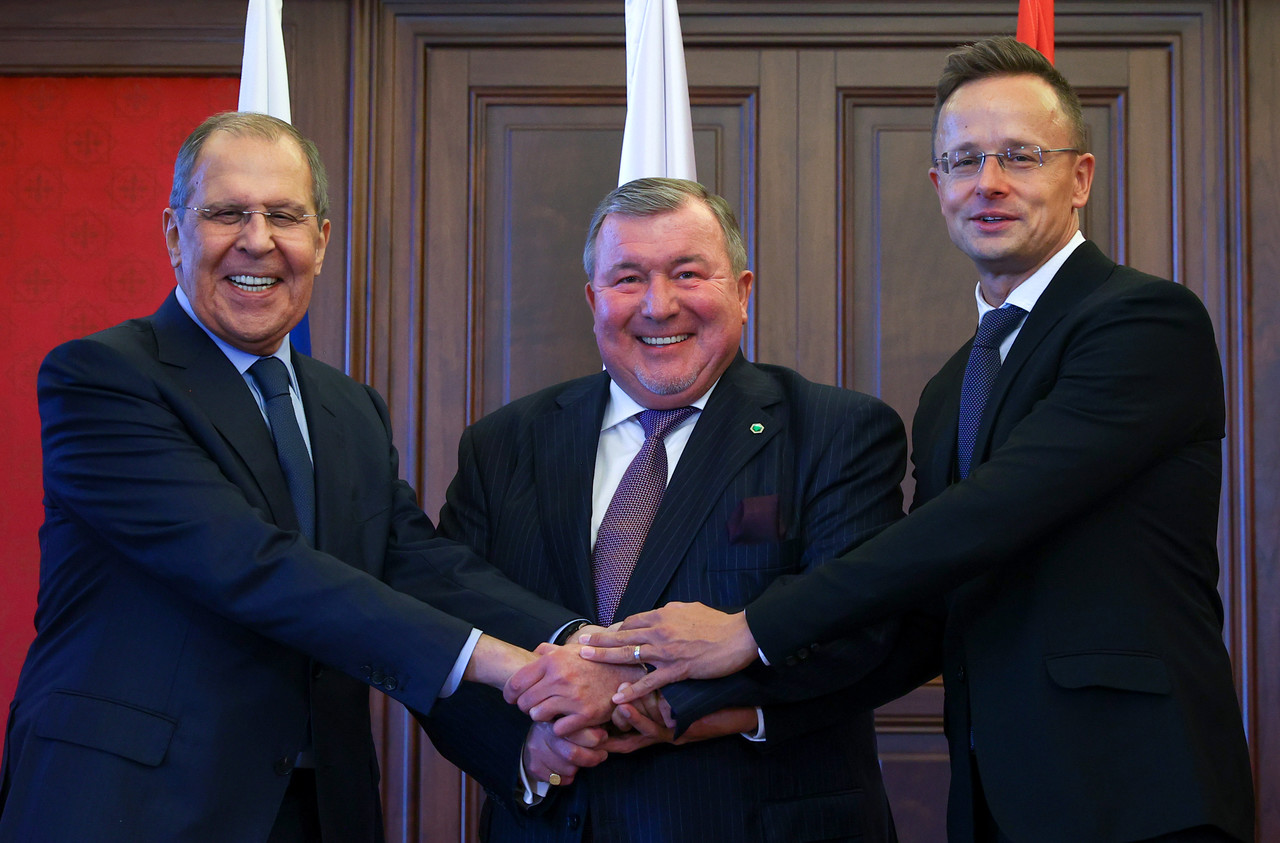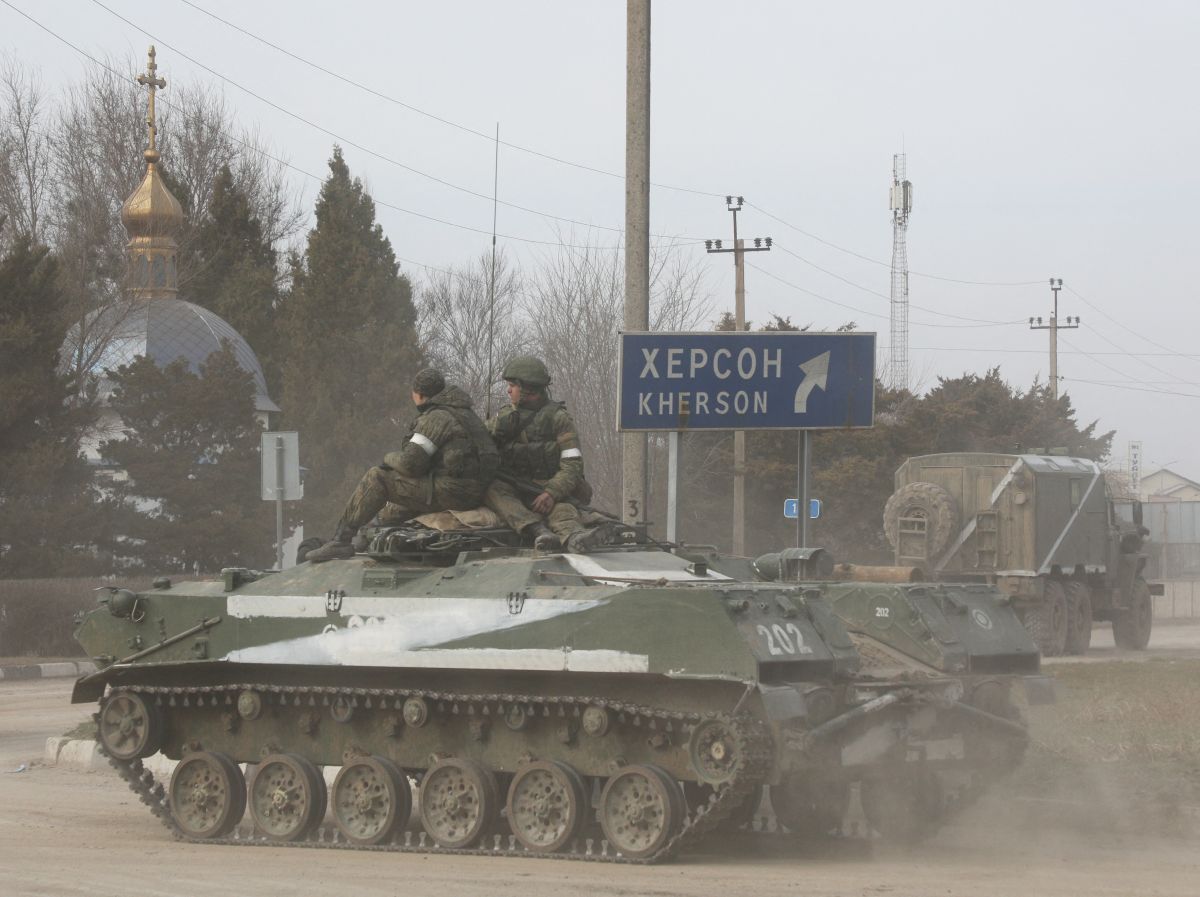Hungary's Reaction to the War in Ukraine
In response to Russia’s invasion of Ukraine, Hungary in principle limits its reaction to adopting EU and NATO decisions. However, the Hungarian government has not taken any actions to sanction Russia on the bilateral level. It does not support Ukraine with equipment and it has announced that it will not allow the EU to deliver “deadly weapons” through its territory. Hungarian state media is repeating Russian disinformation. Russia takes advantage of Hungary’s attitude to indicate divisions in the West over the war in Ukraine.
 Fot. Russian Foreign Ministry/TASS/Forum
Fot. Russian Foreign Ministry/TASS/Forum
What was the government’s reaction to Russia’s attack on Ukraine?
The Hungarian authorities reacted late and laconically to the Russian invasion of Ukraine. They did not condemn the recognition by Russia of the so-called “people’s republics” in Donbas on 22 February. After the start of the Russian military attack, they maintained that the Hungarian position was consistent with that of the EU’s and NATO’s, but did not name the aggressor. The correction took place on 24 February during the day, but Prime Minister Viktor Orbán limited his message to condemning Russia’s actions and expressing support for Ukraine’s sovereignty and territorial integrity. The most vocal position was taken by President János Áder, who fulfils only a representative role, when, during the summit of the Bucharest Nine in Warsaw on 25 February, he clearly indicated that Russia was solely responsible for causing the war and described its actions as a gross violation of international law. Although he did not sign the letter of the presidents of eight Central and Eastern European EU countries from 28 February supporting Ukraine’s application for immediate EU membership, the next day Foreign Minister Péter Szijjártó expressed such support.
What is Hungary’s approach to the EU and allied measures?
As predicted, Hungary did not veto EU sanctions imposed on Russia. Orbán announced that also in the future, the country would take part in joint NATO measures and would adopt all EU provisions “on which there is the consent of other Member States”. This means that in the event of a disruption, Hungary may not support EU restrictions. From the Hungarian point of view, the sanctions imposed on nuclear technology and the import of Russian gas (covering around 90% of Hungarian demand) would be particularly problematic and Hungary hints that it will be against such a decision. In addition, although the government supported sending EU military aid to Ukraine under the European Peace Facility, Szijjártó said that “on a bilateral basis, it will not help deliver deadly weapons” and will not agree to their transport through Hungary. This decision is used by Russian propaganda against Ukraine. At the same time, the terminology used by the Hungarian government may serve the possibility of changing this decision—now favourable to Russia—when the need arises, or even denying that it impedes the EU’s supply of military equipment to Ukraine.
What bilateral measures has Hungary taken?
Hungary’s support for Ukraine covers only humanitarian aid, which is directed mainly to Transcarpathia. In the first days of the war, logistical support was provided to Ukrainians, including representatives of the Hungarian minority (more than 100,000 people as of 2 March), mainly from non-governmental organisations, local governments, and civilians. The government offered aid worth HUF 600 million (about €1.5 million) to alleviate the consequences of the humanitarian crisis. However, according to the prime minister’s declaration, Hungary will not send weapons to support Ukrainian forces. The country also has not taken any bilateral action to sanction Russia for the invasion of Ukraine. It did not close its airspace to Russian planes before the EU made the decision on 27 February. Suspension of joint investments with Russia, including the construction of the Paks 2 nuclear power plant, is unlikely, just as is withdrawal from the Russian European Investment Bank, based in Budapest.
What are the reasons for the government’s restrained reaction to the Russian aggression?
Hungary’s position is largely influenced by its close relations with Russia and the campaign ahead of the parliamentary elections on 3 April. The government’s goal is to distract attention from its poor political decisions, including the fact that Russia, with which it has developed strong political and economic ties over the years, is committing war crimes and threatening the security of all of Europe. For this reason, the government’s message focuses on the need to “restore peace”, without indicating that it was Russia that has disturbed it and Russia that must end the war. The Hungarian authorities emphasise that the solution is negotiations between the parties. At the same time, with regard to the armed conflict, Hungary takes the position of a neutral third party, pointing out that it “must not get involved in it”. Orbán explains the lack of action by the need to remain calm and prudent. In turn, the opposition presents the stakes of the elections as a choice between cooperation with a criminal and with Western structures. At the same time, the lack of a radical change in the Hungarian government’s policy favouring Russia after the outbreak of the war may indicate that ties with this country go way beyond economic pragmatism. Otherwise, the already visible high political costs resulting from the continued support for Russia would force Hungary to adjust its policy.
What does media coverage of the war in Ukraine look like?
The governmental discourse is reinforced by the public media and other outlets subordinated to the ruling party, which provide content that fits Russian disinformation narratives, including about the roots of the armed conflict or the correctness of the decisions taken by the Ukrainian authorities after the start of the invasion. For example, these media broadcast interviews with refugees arriving in Hungary who blame the Ukrainian authorities for the war. Without commenting, they report Russia’s position on the conflict, claiming that it is looking for a solution that would serve both sides. They emphasise the dedication of Hungarian society and the state in helping refugees. Due to the large discrepancy between the information available on the internet in European media and the government’s discourse, which has been for a few months presenting the responsibility of Russia and the West for the conflict symmetrically, there is considerable confusion on social media as to who and what caused the war and what it means for Hungary and Europe.





